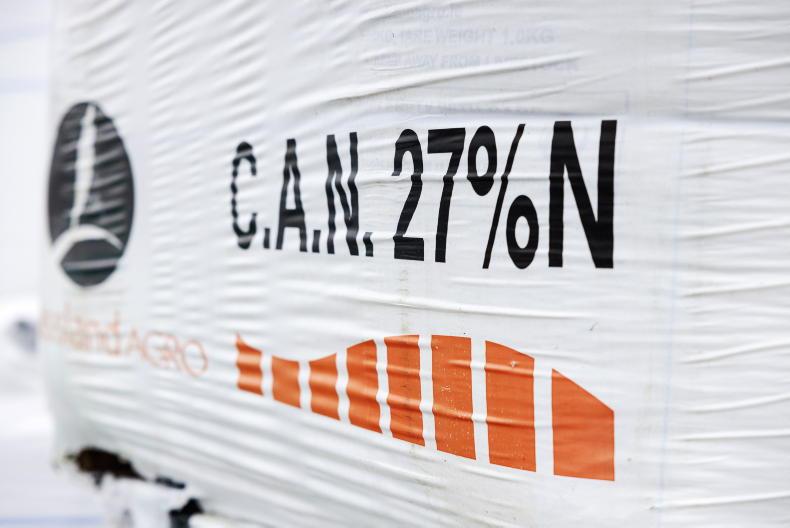Food back on political agenda, says UFU
A meeting of senior politicians and agri food leaders in Downing Street on Tuesday shows that food security is a priority for the UK government, UFU deputy president John McLenaghan has said.
“It was positive to see that domestic self-sufficiency is on the political agenda for the Prime Minister,” commented McLenaghan after the Farm to Fork Summit.
The Garvagh man said there was “a strong recognition of the importance of farmers” by those involved in the meeting.
The UK government’s target is that at least 60% of the food consumed in the UK is produced domestically, although McLenaghan suggested UK farmers can “do so much more” while still meeting environmental targets.
“Our farmers can’t do it alone. We need government and the supply chain to step up and support us,” he said.
More price cuts for fertiliser
Quotes for nitrogen fertiliser have seen more downward movement, with a further price cut of £10/t applied.
At the lower end of the market, quotes on new stocks of CAN sit between £380 and £385/t, with discounts available on larger quantities and full payment on delivery.
However, there are plenty of merchants continuing to quote £400/t for CAN where older stocks have yet to move.
Price quotes for compound fertilisers are also down £10 to £15/t, with products such as 25-5-5 trading around £490/t to £520/t at the start of the week.
However, from midweek on, there were reports it could be bought for as low as £460/t.
Butter and powder prices strengthen
The second and final GDT event for May ended with a 0.9% drop in the overall index price, making it the first negative auction since early April.
Despite this, there were big gains for butter, with prices up 2.2%, while whole milk powder (WMP) rose by 0.3%. Skim milk powder (SMP) fell 1.1% with cheddar down 3.4%.
At Wednesday’s Dutch Dairy Board auction, butter rose by €40 to €4,650/t with WMP up €60/t to €3,350/t, whereas SMP prices held steady on €2,400/t.
UK rollout for ‘Not for EU’
A “Not for EU” label on mostly food-related goods is to be rolled out across the UK, and will not be used solely on products from Britain placed in the market in NI, British Foreign Secretary James Cleverly has confirmed.
As part of the Windsor Framework agreement between the EU and UK, the “Not for EU” label was seen as a way of allowing produce which meets the UK’s regulatory standards to be placed on the market in NI, without the need for onerous checks at NI ports.
Addressing a House of Lords committee on Tuesday, the Foreign Secretary said that discussions with retailers had identified a UK-wide solution as being the preferred option for the “Not for EU” label. The new arrangement will start this autumn, and be phased in over a period of two years.






 This is a subscriber-only article
This is a subscriber-only article










SHARING OPTIONS: